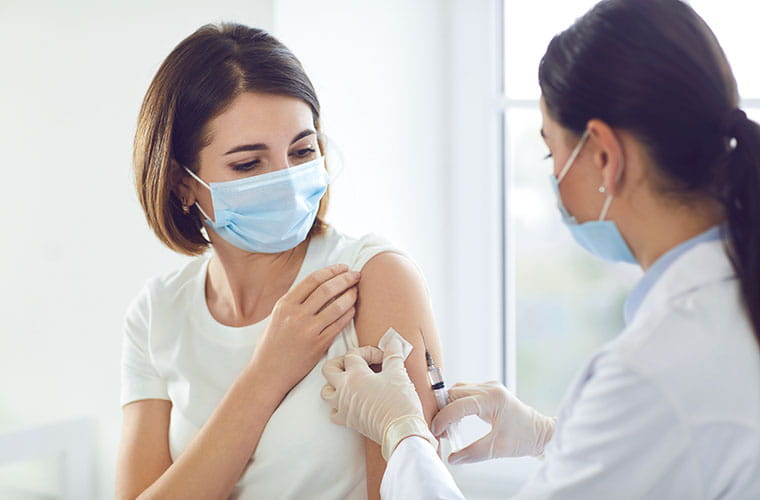Breakthrough COVID-19 infections explained

As the COVID-19 pandemic continues, so does increased media coverage of “breakthrough” COVID-19 infections among vaccinated people. BayCare wants to help the community understand this phenomenon and how individuals can protect themselves.
“The best thing you can do to protect yourself is to get a COVID-19 vaccine,” said Dr. Nishant Anand, chief medical officer for BayCare. “Next, all of us need to continue to be diligent in wearing masks when in public indoor settings to cut down on the transmission of COVID. The more we deprive this virus of transmission, the sooner we will turn the corner on the pandemic.”
What is a breakthrough COVID-19 infection?
A breakthrough COVID-19 case is the terminology being used to describe when a vaccinated individual contracts a COVID-19 infection.
Then is vaccination a waste of time?
Absolutely not. While vaccinated individuals may still become infected, the research is showing that getting the vaccine dramatically reduces the severity of the infection and the risk of hospitalization and death, even with the more contagious Delta variant. On Sept. 10, the Centers for Disease Control and Prevention (CDC) announced research findings that underscored the risk of being unvaccinated with the Delta variant: Unvaccinated individuals were 4.5 times more likely to get COVID-19; 10 times more likely to be hospitalized from COVID-19; and 11 times more likely to die from a COVID-19 infection.
Why are we hearing more about breakthrough cases now?
For a couple of reasons: Vaccine rollout started just a few months before the arrival to the United States of the more-contagious Delta variant of COVID-19. The Delta variant is so tough because it has proven so efficient at replicating itself, leading to a surge in cases and increased transmissions, particularly among the unvaccinated. If more individuals are vaccinated, fewer individuals would become as acutely ill, thereby reducing risk of transmissions and also breakthrough cases.
But why aren’t the vaccines working better?
The COVID-19 vaccines help the body learn to produce the right antibodies to ward off a COVID infection. But no vaccines are 100 percent effective at preventing illness, so breakthrough cases are expected. Some fully vaccinated people will get sick, but the risk of infection, hospitalization, and death are all significantly lower in vaccinated individuals compared to those who are unvaccinated.
As variants such as Delta continue to spread, and more people get vaccinated, chances increase that vaccinated individuals will get COVID. An analogy is seatbelts: when a high percentage of people start to wear seatbelts, a higher percentage of car accidents are going to involve people who wear seatbelts. However, the overall fatality rate for car accidents will drop. Vaccines are intended to prevent severe illness, hospitalization and death. The COVID vaccines are doing that very well and are a critical tool to bring the pandemic under control.
How do I improve my chances of avoiding a breakthrough infection?
If you are immunocompromised and already vaccinated, the CDC is recommending a third dose of the same vaccine you received the first time, either Pfizer or Moderna. The Food & Drug Administration has not yet authorized a third dose for anyone else.
Everyone can increase their chances of avoiding a breakthrough infection by wearing masks indoors in public settings and by practicing social distancing and good hand hygiene.
Also, encouraging everyone in your immediate circle to obtain the vaccine will protect them but also you, as they will be less likely to pass COVID-19 virus to you.
